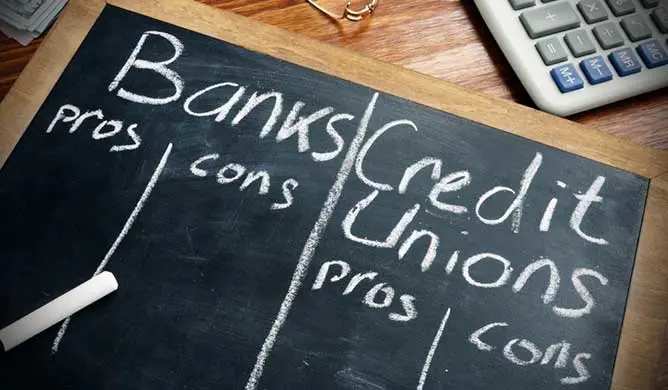Time to read : 2 Minutes
How Do Credit Unions Differ From Banks
If you’re in the market for a new home to save/invest your money, you should know there are more options than banks. Credit unions are also a viable option.
So, what’s the actual difference between banks and credit unions?
What is a credit union?
Credit unions are membership-based financial institutions. To become a customer, you are essentially becoming a member.
Credit unions started out as community organisations designed to look after the financial needs of a specific community. These organisations often served locals or a common profession (such as a credit union for teachers, or police, for example).
The members of early credit unions would pool their money to deliver financial services to each other. Today’s credit unions operate differently, with membership usually open to anyone.
How do credit unions differ from banks?
Credit unions offer many similar services as those offered by banks, including transaction and savings accounts, loans and credit cards and higher interest earning term deposit accounts too.
The biggest difference between banks and credit unions is that banks are typically owned by shareholders. Credit unions are owned by their members.
So, while banks pay dividends to shareholders, the profits made by credit unions benefit to their members. And that can mean lower fees or reduced interest rates on loans.
Both institutions are recognised as Authorised Deposit-taking Institutions (ADIs) under Australian law, with government regulations in place to protect your money.
Credit unions compete against the bigger banks when it comes to great rates but, because they are smaller, they don’t always have the variety of products available.
Finding branches across the country and in regional or more remote areas can also be tricky. But with most people banking exclusively online these days, that’s probably less of an issue than it once was in the chequebook days of banking.
Key takeaways:
Credit unions often have lower fees and better interest rates on savings accounts and loans
The mobile apps and online technology offered by the bigger banks usually has more bells and whistles
Banks usually have more branches and ATMs across the country.
The bottom line
Where you put your money is a personal choice that comes down to trust, convenience, ethics – and an eye on potential profitability. Compare what’s on offer next time you’re in the market for a loan or an account to save some money. You might just discover an interesting alternative.
Go deeper:
12 tips for the new financial year
Compare Club's Home Loan Providers
Financial disclaimer
The information contained on this web page is of general nature only and has been prepared without taking into consideration your objectives, needs and financial situation. You should check with a financial professional before making any decisions. Any opinions expressed within an article are those of the author and do not specifically reflect the views of Compare Club Australia Pty Ltd.
